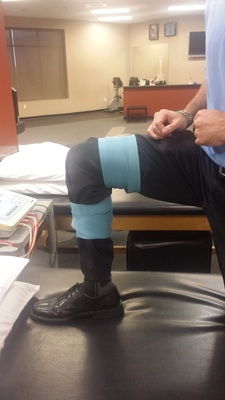- Home
- About Us
- TSPT Academy
- Online Courses
-
Resources
- Newsletter
- Business Minded Sports Physio Podcast
- Day in the Life of a Sports PT
- Residency Corner
-
Special Tests
>
-
Cervical Spine
>
- Alar Ligament Test
- Bakody's Sign
- Cervical Distraction Test
- Cervical Rotation Lateral Flexion Test
- Craniocervical Flexion Test (CCFT)
- Deep Neck Flexor Endurance Test
- Posterior-Anterior Segmental Mobility
- Segmental Mobility
- Sharp-Purser Test
- Spurling's Maneuver
- Transverse Ligament Test
- ULNT - Median
- ULNT - Radial
- ULNT - Ulnar
- Vertebral Artery Test
- Thoracic Spine >
-
Lumbar Spine/Sacroiliac Joint
>
- Active Sit-Up Test
- Alternate Gillet Test
- Crossed Straight Leg Raise Test
- Extensor Endurance Test
- FABER Test
- Fortin's Sign
- Gaenslen Test
- Gillet Test
- Gower's Sign
- Lumbar Quadrant Test
- POSH Test
- Posteroanterior Mobility
- Prone Knee Bend Test
- Prone Instability Test
- Resisted Abduction Test
- Sacral Clearing Test
- Seated Forward Flexion Test
- SIJ Compression/Distraction Test
- Slump Test
- Sphinx Test
- Spine Rotators & Multifidus Test
- Squish Test
- Standing Forward Flexion Test
- Straight Leg Raise Test
- Supine to Long Sit Test
-
Shoulder
>
- Active Compression Test
- Anterior Apprehension
- Biceps Load Test II
- Drop Arm Sign
- External Rotation Lag Sign
- Hawkins-Kennedy Impingement Sign
- Horizontal Adduction Test
- Internal Rotation Lag Sign
- Jobe Test
- Ludington's Test
- Neer Test
- Painful Arc Sign
- Pronated Load Test
- Resisted Supination External Rotation Test
- Speed's Test
- Posterior Apprehension
- Sulcus Sign
- Thoracic Outlet Tests >
- Yergason's Test
- Elbow >
- Wrist/Hand >
- Hip >
- Knee >
- Foot/Ankle >
-
Cervical Spine
>
- I want Financial Freedom
- I want Professional Growth
- I want Clinical Mastery
|
In physical therapy school, one of the things that we are taught to screen for is non-mechanical pain. This is theoretically linked to non-musculoskeletal origin. How do we identify non-mechanical pain? Typically, it is constant and unchanging with different positions. You would think that would be easy to identify, but upon encountering your patients, I'm sure you have learned that isn't exactly always the case. Upon learning how to implement repeated motions, a positive sign for good results is intermittent pain. These patients tend to respond extremely well to this treatment form. However, that doesn't mean constant pain won't respond. First of all, frequently patients who report their pain is constant don't necessarily understand that constant is associated with 24 hours a day 7 days a week. So make sure you clarify that first. Second, if a patient can find more comfortable or uncomfortable positions or activities that can help to identify the excessive loading pattern and directional preference. Now in some rare cases, a patient will continue to report a constant unchanging pain. I had this happen several days ago. This patient from the initial evaluation had a demeanor that was not interested in physical therapy and consistently stated her pain was unchanging, yet didn't really have much interest in pursuing physical therapy other than her doctor telling her to attend. I proceeded to assess repeated sideglides for her hip pain, using pain with walking as her asterisk sign. After about 60 repetitions, the pain had significantly reduced and my patient was in disbelief. While this patient did respond to repeated motions with her constant pain, that doesn't necessarily mean all constant pain will respond accordingly. It can be a red flag, but remember 1 red flag by itself doesn't necessitate referral. Make sure you really question your patients on the pattern of their pain and for any potential aggravating/alleviating factors. This will help to narrow down those who have pain of musculoskeletal origin. -Dr. Chris Fox, PT, DPT, OCS
0 Comments
Leave a Reply. |
Dr. Brian Schwabe's NEW Book in partner with PaleoHacks!
Learn residency-level content on our
Insider Access pages We value quality PT education & CEU's. Click the MedBridge logo below for TSPT savings!Archives
July 2019
Categories
All
|









 RSS Feed
RSS Feed